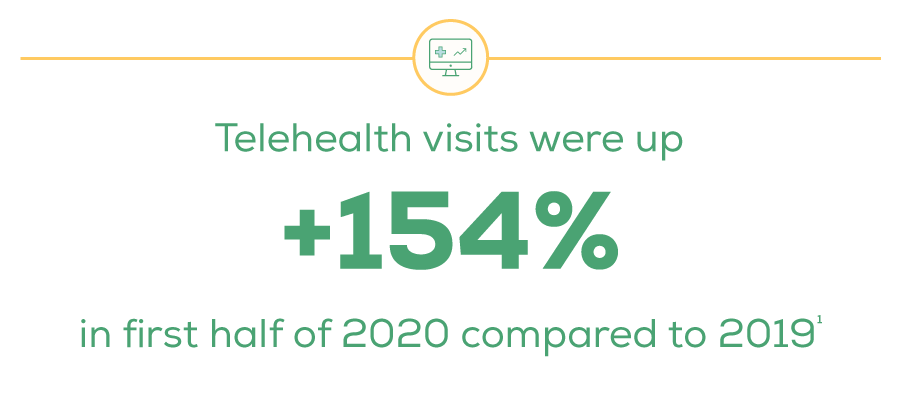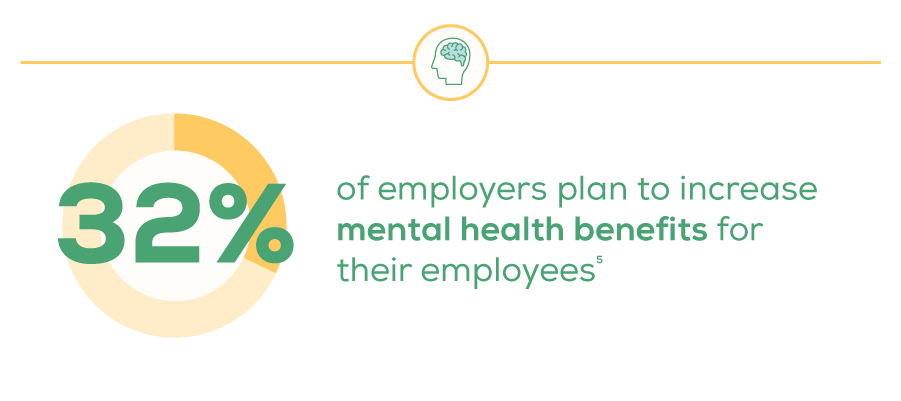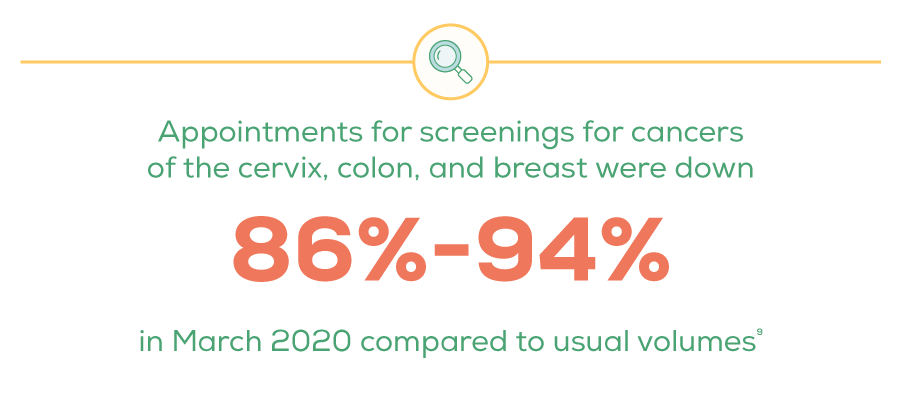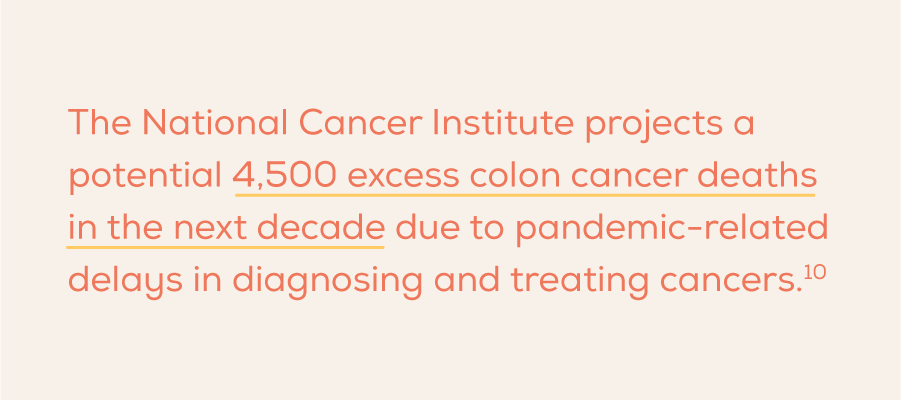
Looking Forward: 5 ways healthcare will evolve in 2021
With the transition to a new year comes the opportunity for reflection. And it’s worthwhile to do so after the year we had. While 2020 was often very painful and challenging, I believe it has catalyzed significant changes in the healthcare industry that we will begin to experience this year. Many of these changes will create improved experiences for Americans, helping to better engage in their health. Some of them will impact the health outcomes of millions.
1. The continuum of online and offline care will converge.
As the COVID-19 pandemic emerged in the U.S. during the first quarter of 2020, the CDC recorded that telehealth visits increased by 50% compared to the same timeframe in 2019. This format of care reached a 154% increase around the first half of 2020, compared to 2019 [1]. Even after the World Health Organization declared COVID-19 a global pandemic on March 11, 2020, the majority of these visits through March were not related to COVID-19 at all. Rather, they were patients seeking care for other conditions.
It’s not just the digitally-enabled millennials who are embracing virtual care. In March of 2020, the Centers for Medicare & Medicaid Services (CMS) issued new guidance expanding the use of virtual care in lieu of regular in-person visits [2]. A month after this announcement, President Trump remarked that “the number of Medicare patients using telehealth has increased from roughly 11,000 a week to more than 650,000 people a week.” [3]. In fact, sales of the Everlywell FIT Colon Cancer Screening Test doubled during the second quarter of 2020 compared to 2019.
Individuals at-risk for severe illness from the virus that causes COVID-19 have understandable reservations about the potential COVID-19 exposure that accompanies a visit to a public setting like a doctor’s office, hospital, or lab testing site. Their care options are to engage in at-home healthcare or wait until they feel safer about visiting a healthcare facility during the pandemic or once it subsides.
In 2021, the continuum of online and offline care will continue to converge. With expanded access to at-home and virtual healthcare, a higher adoption rate of these methods among all demographics, and improved policies, at-home healthcare will continue to be a crucial method for care well beyond COVID-19.

2. Employers will play a growing role in facilitating physical and mental wellbeing.
In 2020 like never before, employers became the custodians of employee health and wellbeing. As the pandemic emerged in the United States, businesses were given the heavy responsibility of defining themselves as essential or not, and interpreting what that meant for their employees.
Businesses with essential employees acted quickly to protect their onsite workforce; providing PPE, plexiglass barriers, instruction on social distancing and good hygiene, checking temperatures onsite, and implementing testing strategies.
Last year, our Everlywell team members worked with manufacturers, universities, municipalities, and many government agencies to distribute almost 1 million Everlywell COVID-19 Test Home Collection Kits (now COVID-19 Test Home Collection Kit DTC*). Businesses give the at-home COVID-19 test collection kit to their employees and participants, not only to maintain their health during the pandemic, but to help provide peace of mind to employees who may be exposed on the job.
That brings us to the second part of employee health in 2021: mental wellbeing. During June of 2020, a survey conducted by the CDC found that 40% of adults surveyed reported struggling with mental health or substance use [4]. And this is afflicting the remote workforce just as heavily as those working in-person. As a result of the COVID-19 impact on mental health, 32% of employers plan to increase mental health benefits for their employees. [5] There is a high demand for a pro-health culture to attract and keep talent while achieving better health outcomes.

Additionally, the role of digital health and well-being solutions will be increasingly important for employers to invest in to retain and increase the overall health of their employees. Digital health solutions that facilitate personalized healthcare will win as unique worker segments have different attitudes and behaviors towards health [6].
3. Innovations born during the pandemic will evolve to solve other health needs.
We brought the Everlywell COVID-19 Test Home Collection Kit (now COVID-19 Test Home Collection Kit DTC*) to market for enterprise use in May of 2020, and it immediately became evident to us that our enterprise customers needed a real-time digital solution to track participant test results. Four months after launching our COVID-19 Test Home Collection Kit, we brought Everlywell Lens to market. Lens allows our enterprise customers to view, sort, and aggregate participant test results as they become available. And we are now offering Lens as a solution that organizations can use for all our Everlywell at-home lab tests—including the Heart Health Test and HbA1c, FIT test, Microalbumin, and STI tests. Expedited as an innovation of immediate need during the pandemic, Everlywell Lens has become a foothold of our offering that will help cover gaps in care well beyond it.
We aren’t the only ones working quickly to innovate the healthcare space: we’ve seen the emergence of contact tracing software, elevated temperature detection hardware, and most importantly, the acceleration of the COVID-19 vaccine. The speed at which a vaccine was created “challenges our whole paradigm of what is possible in vaccine development,” according to Natalie Dean, a biostatistician at the University of Florida in Gainesville [7]. Granted, the COVID-19 vaccine would not have been possible without the years of research previously conducted, substantial funding, and urgency worldwide. However, the innovations made in using spike proteins for this vaccine will likely be helpful for future vaccines and diagnostics beyond the pandemic [8].
4. Gaps in care created by COVID-19 will have a big impact on health plans, employers, and Americans.
A recent report by Epic Health Research Network found that screening appointments were down 86-94% in March of 2020 compared to usual volumes for the same time period [9]. Let’s break down what this will mean for health plans, employers, and Americans this year and beyond.
Health Plans Because a large volume of Americans avoided getting essential care in 2020, risk adjustments, which are the categorizations of health plan members having diseases or ailments, have dropped as populations are going undiagnosed and unmanaged. The health plan revenue model relies on these risk adjustments. This year and beyond, health plans and the healthcare systems will likely experience a drop in revenue due to the lack of risk adjustments and the inability to properly assess cost of coverage. Adding to this, the postponement of various procedures during the pandemic will drive increased healthcare spending over the next few years.

Employers Because of the decline in medical visits, employers are seeking out ways to ensure their employees are getting the care they need. Employers will be looking to digital healthcare solutions to help manage costs and future ulitization.
Americans In June of 2020, the National Cancer Institute raised an alarm by projecting a potential 4,500 excess colon cancer deaths in the next decade due to pandemic-related delays in diagnosing and treating cancers. Gastroenterologist Thomas Imperiale, MD, of the Indiana University School of Medicine expects more advanced cases of colorectal cancer presenting over the next 6 months, 12 months, and beyond if pandemic-related delays in screening continue [10]. Digital health solutions will be instrumental in helping Americans access quality and affordable on-demand healthcare to improve their conditions.

5. Americans will increasingly expect a more personalized healthcare experience.
This year, the Medicare Stars patient experience, complaint, and access measures are increasing to a weight of 4. With these updates, Medicare patients will be given a stronger voice in their care experience. By comparison, intermediate clinical outcome measures, such as the percentage of a plan’s members with diabetes effectively managing their blood sugar, are only a weight of 3. Americans will have more control over their healthcare experience and will expect a higher level of personalized care.
Americans also expect a more personalized healthcare journey. Designing for seamless care experiences by gaining an intimate understanding of an individual’s healthcare journey and identifying the high-impact touchpoints for digital engagement will become table-stakes for digital health companies. Individual patient populations differ in their digital engagement preferences, whether by socio-economic status or any other demographic factor. Interoperability and data-sharing rules will ease data sharing, reduce information blocking, and lead to more innovation in designing these personalized experiences of the future [11].
Additionally, precision medicine is also changing American’s expectations of individualized healthcare. The influx of consumer-based healthcare, combined with steady advances in precision medicine, results in a public that is becoming increasingly more open to personalized healthcare. Americans are more willing to share their healthcare data when the tradeoff is a customized healthcare solution unique to their needs [12]. Precision medicine will continue to influence the type of care individuals get, how they seek care, and how they manage their overall well-being.
Conclusion As we approach the post-pandemic era, reshaping healthcare has more promise than ever. Advancements in technology will allow for easier access and more transparency to put consumers in control of their health. Everlywell has been powering self-discovery for better health since 2015, and we are optimistic about how healthcare will evolve over the next few years
*This home collection kit has not been FDA cleared or approved. This home collection kit has been authorized by the FDA under an EUA. Read more at https://www.everlywell.com/products/covid-19-test/.
About the author Kristen Augspurger is the VP of Enterprise Strategy and Solutions at Everlywell. A strategic healthcare leader with over twenty years of industry experience, she has played key roles in leading healthcare transformation for consumers and providers via technology, product innovation, pharmacy, and digital health solutions. Kristen has extensive experience with consumer engagement and behavior change, improving the quality of care and health outcomes of populations. Kristen is a graduate of Ball State University and resides in Louisville, Kentucky.
About Everlywell Today, more than one million people have used Everlywell’s tests and digital platform to manage their health and wellness.
Everlywell is the leading consumer-initiated at-home healthcare platform helping people through direct channels. We work with retail partners like Target, CVS, and large organizations ranging from national health plans to universities.
References
1. CDC. Trends in the Use of Telehealth During the Emergence of the COVID-19 Pandemic — United States, January–March 2020. 10/30/20.
2. CMS. Medicare Telemedicine Health Care Provider Fact Sheet. 3/17/20.
3. The White House. Remarks by President Trump on Protecting America’s Seniors. 4/30/20
4. CDC. Mental Health, Substance Use, and Suicidal Ideation During the COVID-19 Pandemic — United States, June 24–30, 2020. 8/14/2020.
5. SHRM, Workers’ Mental Health Suffers During the Pandemic: How Managers Can Help. 10/22/20
6. Mercer Marsh Benefits: Health on Demand, Global Report, February 2020.
7. Nature. The Lightning-fast quest for COVID vaccines and what it means for other diseases. 12/18/20.
8. Science Magazine. Structure-based design of prefusion-stabilized SARS-CoV-2 spikes. 12/18/20.
9. Epic Health Research Network. Delayed Cancer Screenings. 5/4/20.
10. JAMA. Pandemic Spotlights In-home Colon Cancer Screening Tests. 12/23/20.
11. Healthcare IT News. Beyond telehealth: the virtual care technology trends that will transform healthcare. 6/12/20.
12. Deloitte Insights. Are consumers already living the future of health?. 8/13/20.